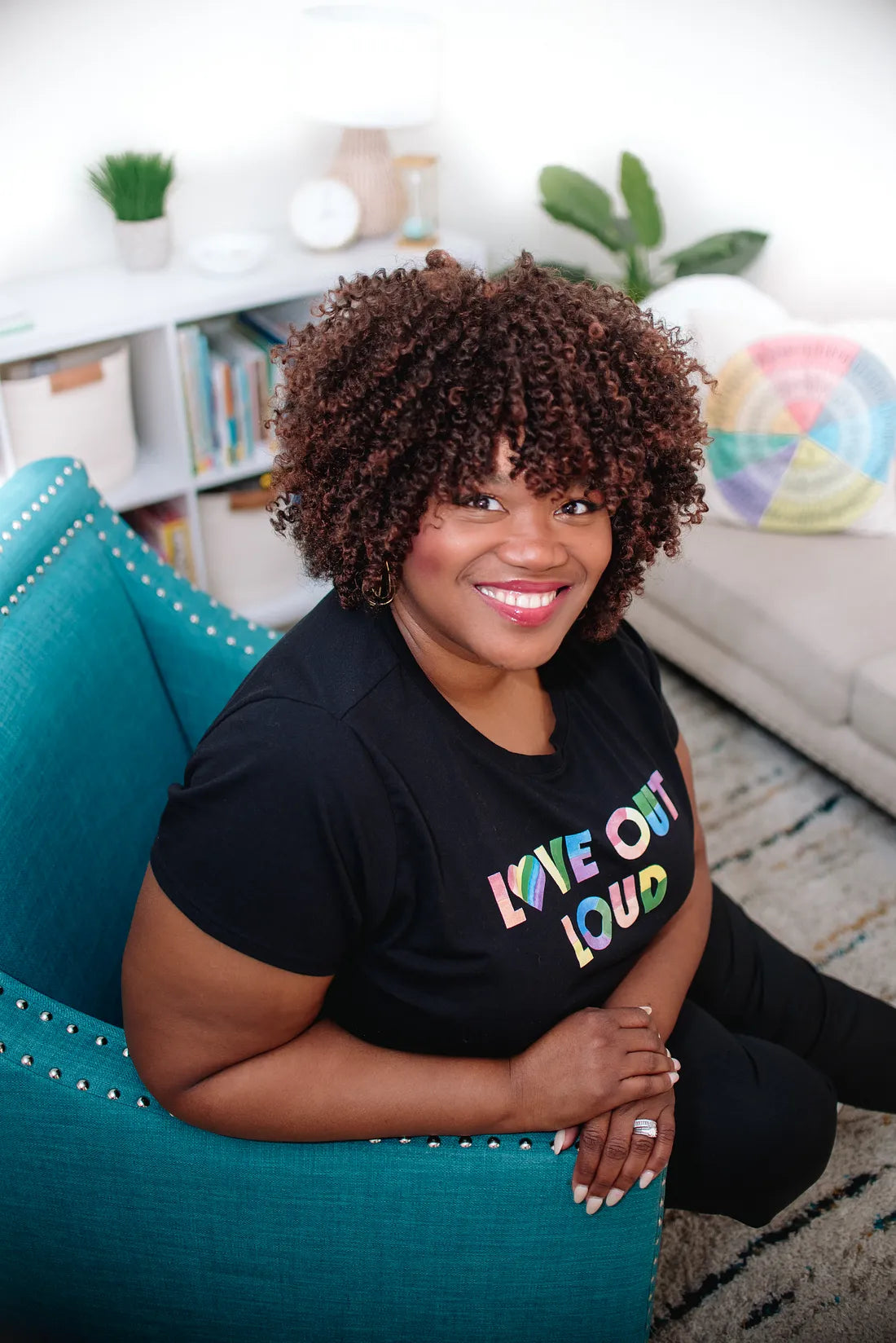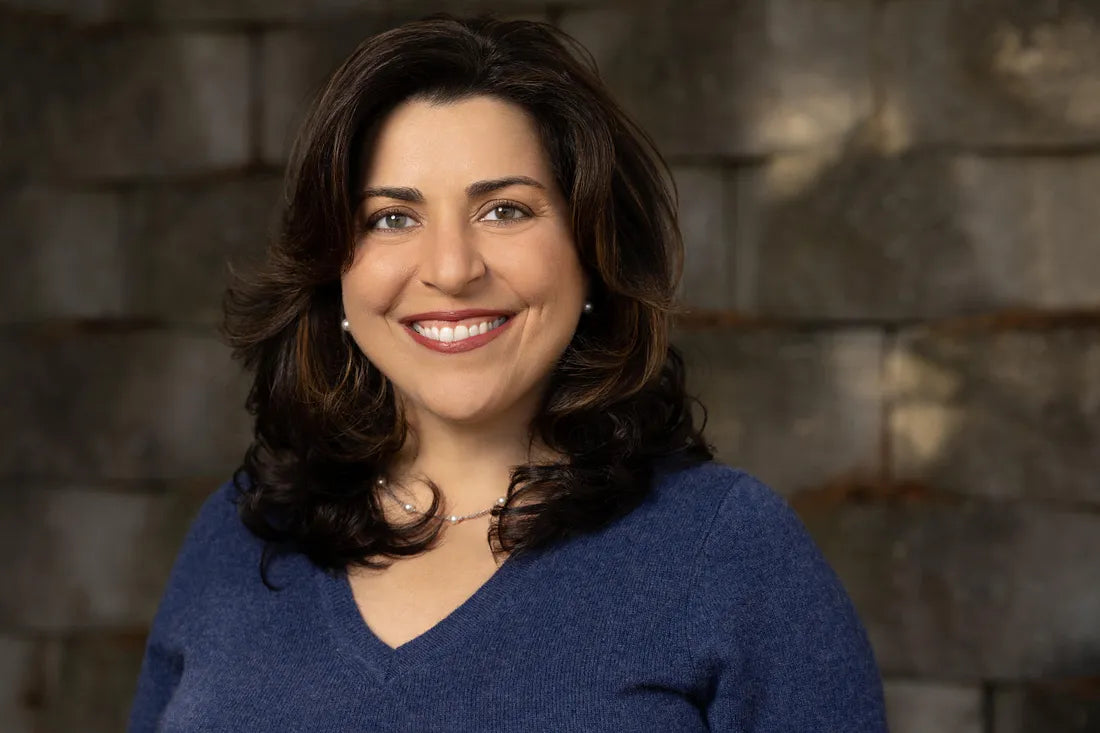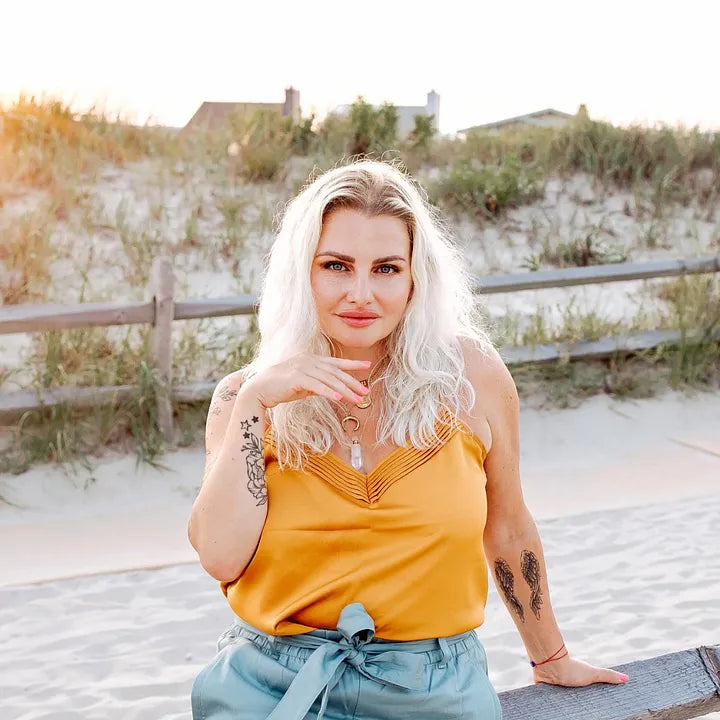
Not all money is good money. Be willing to assess whether the new opportunities that come along will benefit your business, both acutely and long-term. If it sounds too good to be true, it probably is.
Today, more than ever, wellness is at the forefront of societal discussions. From mental health to physical well-being, women are making significant strides in bringing about change, introducing innovative solutions, and setting new standards. Despite facing unique challenges, they break barriers, inspire communities, and are reshaping the very definition of health and wellness. In this series called women in wellness we are talking to women doctors, nurses, nutritionists, therapists, fitness trainers, researchers, health experts, coaches, and other wellness professionals to share their stories and insights. As a part of this series, we had the pleasure of interviewing Natalie Bunner.
Natalie Bunner, LCSW-BACS, CCTP, is the founder and Clinical Director of Thrive Therapy and has served children and youth for most of her 25+ year career. Her passion has always been to advocate for children’s rights and honor them NOW as human beings with the potential to thrive. Natalie walks the journey with her clients and helps them resolve life-altering challenges and find healing. As a clinician, speaker and community connector, Natalie strives to positively contribute to the health and wellness of her clients and community.
Thank you so much for joining us in this interview series! Our readers would love to “get to know you” better. Can you share your “backstory” with us?
Hi, I am Natalie Bunner, a die-hard child advocate. The oldest of a large family, I have been the mediator and advocate for kids my whole life. While my initial professional goal was to be the next Oprah, I quickly realized that my lived experience primed me to be in the profession I am currently in — pediatric mental health. After 12+ years in social services, managing the cases for pregnant teens and teen mothers, I was faced with the harsh challenges to social determinants of health and how the kids I worked with faced multi-level lack with little resource in sight. I was determined to find ways to do more to help disadvantaged children. This led me back to college to obtain a Masters in Social Work. Once I graduated, I tried a wide range of social work — Partial-hospitalization programs and Intensive Outpatient programs for adult chronic mental health, and school social work — and it only entrenched my desire to serve children in mental health. In the words of Frederick Douglass, “It is easier to build strong children than to repair broken men.” Seeing the reality of mental health through agency work, I knew, without a shadow of a doubt, that my purpose was to build strong children. Now, as a mother of two neurodivergent children, I recognized that there is an overwhelming need for mental health professionals who see kids as human beings, not extensions of their adult caregivers. I feel honored to be a contributor to their emotional and mental health.
Can you share the most interesting story that happened to you since you started your career? What were the main lessons or takeaways from that story?
Oh, there are so many! One experience I think I will forever remember is meeting a 14-year on my first day working in youth residential care. She had been through so much — non-consensual pregnancy, foster care, isolated from family — and was very resistant to new faces due to her lived experiences. This was a long-term facility so she remained in care until she aged out of care. There were very little resources for children in foster care who turned 18 so the facility worked tirelessly to help our kids have foundational items.
Fast forward through the years of highs and lows, I have been able to maintain a relationship with this young mother, celebrate her wins and support her drive to live successfully. The guarded, hurting 14-year-old is now a wonderful mother of three who educates today’s youth in elementary education. Recently, her oldest son, who was two when I started working with them, has attended college, and is currently engaged! The takeaways that I have leaned into since is that kids who need the most help may not present their needs in the most effective ways so don’t get bogged down by their behaviors. Be deeply compassionate, supportive and help them find their emotional language and watch how both their mental and relational health improve. Also, remember that kids are KIDS, not mini adults who have reached their development peak. We must consider how their development has been impacted by their lived experiences and meet them where they are.
It has been said that our mistakes can be our greatest teachers. Can you share a story about a mistake you made when you were first starting? Can you tell us what lesson you learned from that?
Oof! Living and learning is a necessary part of growing as a professional and it doesn’t always feel good! One of the most impactful lessons I learned was the importance of boundaries. When I first started my private practice, my initial concern was, “What if no one wants to see me?” I did not consider the opposite: what if I can’t keep up with demand? Once I opened my business, the calls started flooding in and I kept say, “yes, sure, I will take you.” Soon, my caseload was full. While I was very grateful for the opportunity to provide therapeutic services, I realized that, in taking every client who reached out, I was not working within the niche I desired to serve. I had to sit with my business coach and reflect on where I was versus where I wanted to be. Instead of saying a constant “Yes”, I began to make the hard decision to accept clients that matched my niche and refer clients who did not. It challenged my knee-jerk reaction to help every person who called my office! But my goal to build a pediatric mental heath practice was not going to happen by accident. I had to be intentional in creating the practice I was purposed to build.
Let’s jump to our main focus. When it comes to health and wellness, how is the work you are doing helping to make a bigger impact in the world?
I believe that my work in pediatric mental health has a ripple effect. In working with children, youth and emerging adults, I am able to provide additional services to parents/caregivers to strengthen both their relational health with their child and self-awareness related to their parenting style. Our practice is a warm and inviting space, both literally and metamorphically, as I understand that the courage it takes to go to therapy should be met with compassion and support. Many parents show up with their children for session and, while their child is in session, they are taking advantage of our Meditation Room to recalibrate as well. In addition to working with children and families, we also work with professionals in child-centric fields such as medical, mental health, educational, spiritual, etc. Our perspective in working with professionals is that, by supporting them in their personal healing, we are contributing to an increase of healthy adults who are directly serving children. Thus, the ripple effect. We feel deeply that this can ultimately have a positive impact on the lives of children throughout the community, whether we provide services directly to them or not.

Can you share your top five “lifestyle tweaks” that you believe will help support people’s journey towards better wellbeing?
1 . Consider your ability to succeed. I know, this is not the usual fear; we are usually worried about failing. Instead of reacting to avoiding failure, ponder this question, “If you can do anything and win, what would it be?” This is the question I reflected on when thinking about my next professional step after obtaining my clinical license. It was 2020, in the depth of COVID and political unrest, and it would have been easy to be preoccupied with failing at building a practice. Instead, I focused on how I can help by providing effective therapeutic intervention to those seeking services. That mindset positively impacted my focus and kept me focus on the purpose.
2 . Create space to breathe. This one certainly takes intention. Particularly, as a business owner who feels purposed in their work, it is easy to lean into working without pause. However, the implications of that mentality almost always lead to burnout. When I started my practice in 2020 and experienced fast growth, I was not prioritizing rest and paid for that with a 3-week medical set-back in summer of 2021. Lesson learned! I began to create mental health opportunities throughout the work month to limit the overwhelm. Contrary to popular belief, rest is productive and is necessary if we want to experience abundant living.
3 . Build healthy boundaries. We have all heard so much about boundaries, but many people struggle to create effective ones in their lives. Believe it or not, boundaries are not for other people; they are for us. Once I learned the difference between boundaries and ultimatums, I was able to keep the focus on my wellbeing — what I needed to be well — and make choices that supported this. Boundaries allow me to maintain emotional and mental health regardless of what is occurring in the world around me.
4 . Assess and adjust. We can experience life by accident or we can explore life on purpose. Living abundantly requires me to regularly assess what is working in my life and what isn’t. I have learned not to wait until the New Year, when it is socially acceptable to consider change. Instead, I reflect on each life area quarterly, determine how satisfied I feel and what would it take to improve satisfaction. This has helped me maintain mindfulness in how I live and created flexibility around change.
5 . Find your People. When I first started my private practice, I dealt with the natural isolation of the times as well as the challenge of starting a business alone. My extroverted nature requires healthy connection so I sought it out in other clinicians who either started their practice around the same time or had young practices. In 2022, I started a one-year endeavor in which I build a private practice network of new practice owners and held biweekly meetings, both virtual and in-person, that provided the opportunity for therapists to obtain business support, review cases, build relationships and socially network. We are not created to do life in isolation; we were meant to connect in healthy, safe relationships.
If you could start a movement that would bring the most amount of wellness to the most amount of people, what would that be?
One of the things on my short list is to create retreats that would provide people with the opportunity to reconnect with primary relationships and with themselves. I would love to have a parent/child retreat for families who are healing from high conflict relationships — giving the dyad an opportunity to repair without the unyielding environmental stressors they usually face. Another retreat that I am framing out is one for professionals in child-focused professions. Many of them are overworked and undervalued with little resource for respite; I would love to be able to provide biannual opportunities for emotional and mental restoration. s
What are your “5 Things I Wish Someone Told Me Before I Started” and why?
I intuitively hired a business coach with a successful mental health practice so I circumvented a lot of mistakes, thankfully. However, here are five things I learned at the beginning of building my practice.
- There are many steps to take before hanging the “We’re Open!” sign! Take the time to complete all of the necessary paperwork accurately and ensure that, if there are questions, ask before hitting the submit button.
- Your expectations are not other people’s emergencies (and vise versa). I am an expert “11 hour” person; my best work generally happens with a deadline. However, that doesn’t require other people to hop to just because I wait until the last minute to get something done.
- Work with intention. As with my initial start in building my practice, working without purpose can cause cyclic action where one is moving but not going anywhere. Be willing to do your research and work the plan.
- Learn how to say “No”. While I have built healthy resilience by saying no in my personal relationship, I quickly learned that I needed to strengthen my discernment around what my practice needs and what it did not.
- Not all money is good money. Be willing to assess whether the new opportunities that come along will benefit your business, both acutely and long-term. If it sounds too good to be true, it probably is.
Sustainability, veganism, mental health, and environmental changes are big topics at the moment. Which one of these causes is dearest to you, and why?
For me, it is and will probably always be, mental health. I have both personally and professionally experienced things that have highlighted the need for our society to see the need for preventative mental health care. Imagine if we supported mental health the way we promoted medical health; I would expect that it would minimize the stigma of receiving care, whether by participating in therapy or hospitalization.
What is the best way for our readers to further follow your work online?
I have a blog, (www.nataliebunner.com), that explores mental health through posts related to mindfulness, urban social work, parenting and such. I am also on Instagram at @nataliebunnerlcsw — the focus of most of my content is around parenting, child/youth and young adult mental health.
Thank you for these fantastic insights! We wish you continued success and good health.
About the Interviewer: Wanda Malhotra is a wellness entrepreneur, lifestyle journalist, and the CEO of Crunchy Mama Box, a mission-driven platform promoting conscious living. CMB empowers individuals with educational resources and vetted products to help them make informed choices. Passionate about social causes like environmental preservation and animal welfare, Wanda writes about clean beauty, wellness, nutrition, social impact and sustainability, simplifying wellness with curated resources. Join Wanda and the Crunchy Mama Box community in embracing a healthier, more sustainable lifestyle at CrunchyMamaBox.com .



